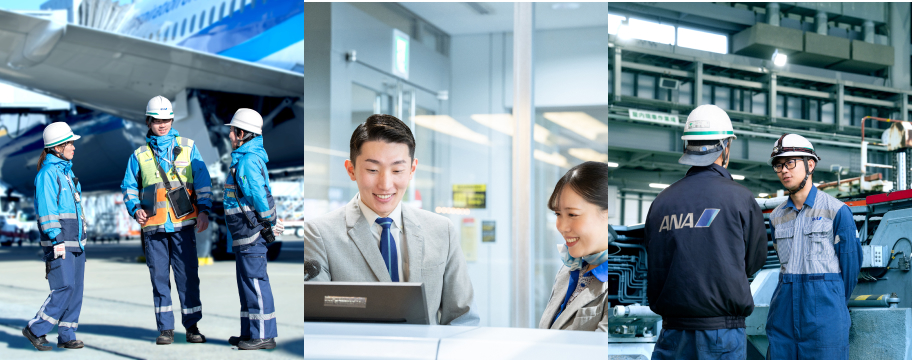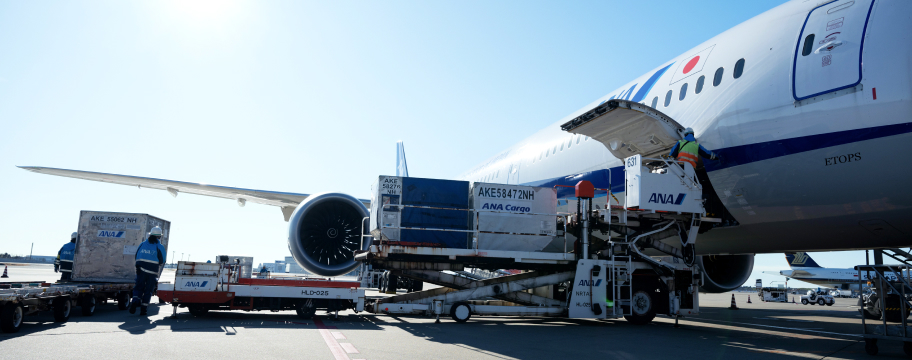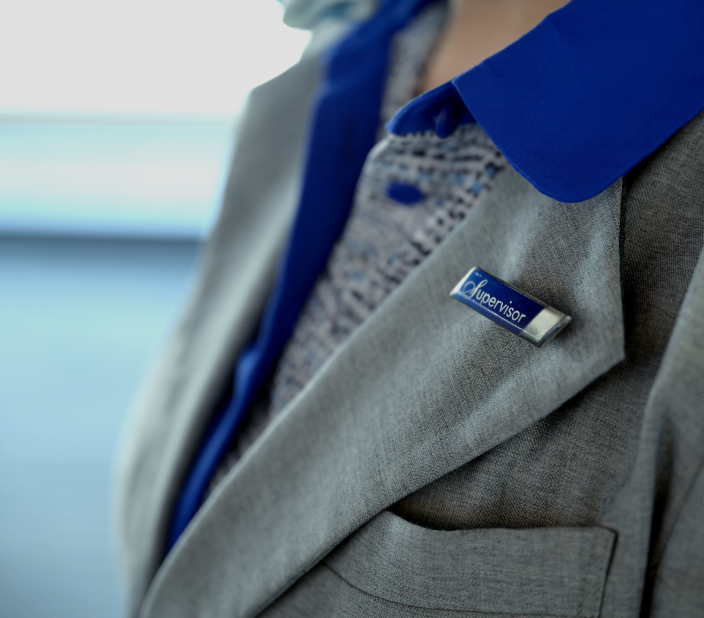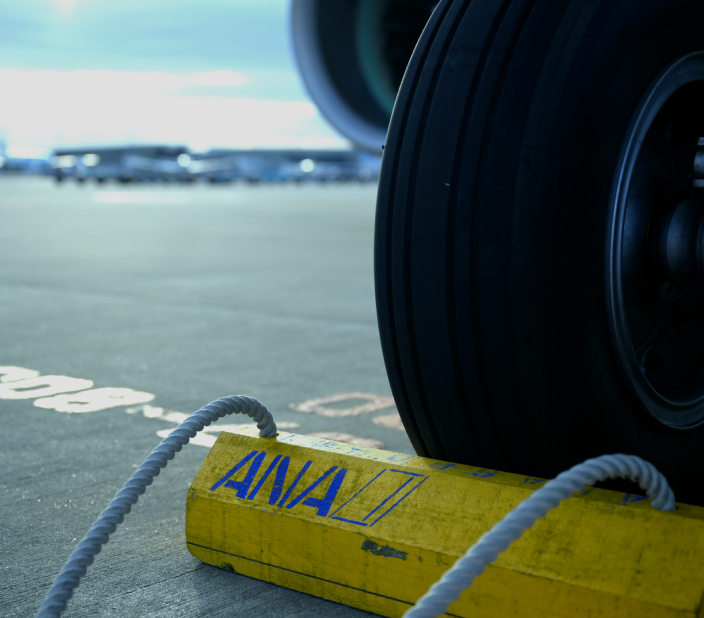FAQ
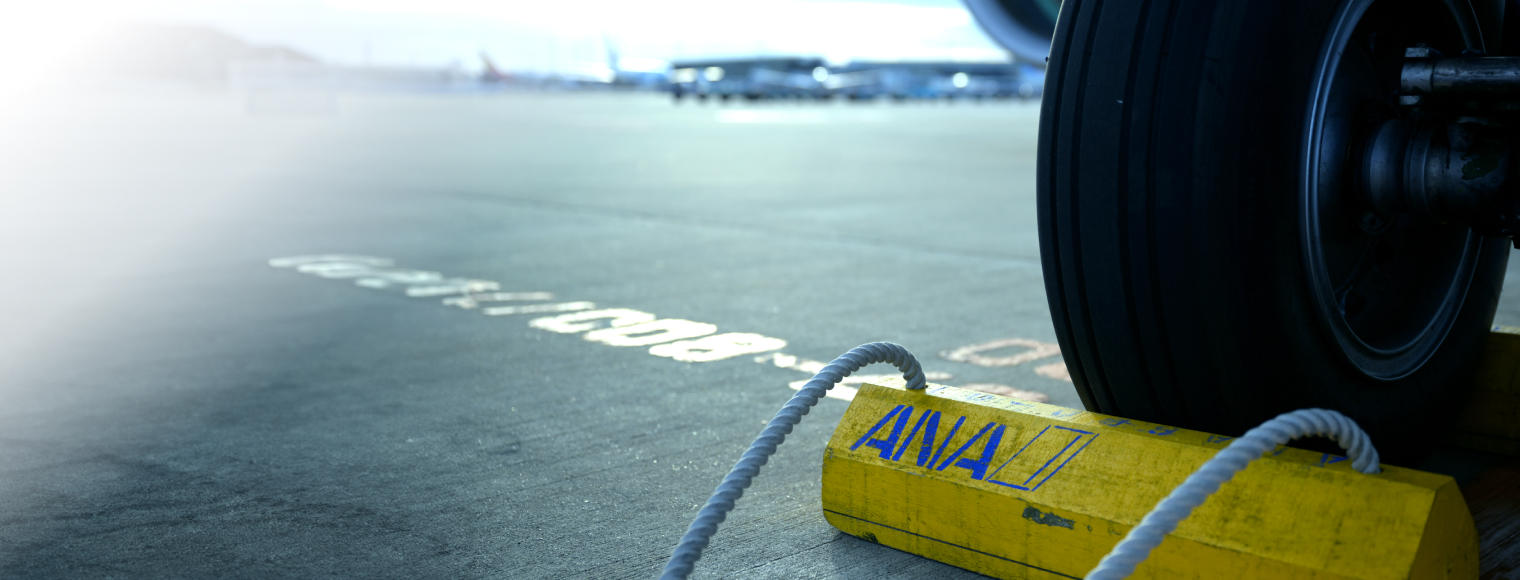
Applying for a job at NRTAS
-
 What qualifications do you need to join NRTAS?
What qualifications do you need to join NRTAS?Ground staff: No specific qualifications are needed. You should have English skills equivalent to a TOEIC score of 550 or Eiken Grade 2.
Ground handling: You should have a Class 1 driver’s license (restricted to automatic transmission is fine) before joining NRTAS.
Vehicle mechanics: You should have a Class 1 driver’s license (restricted to automatic transmission is fine). You can obtain a Class 2/Class 3 Auto Mechanic License after you start working at NRTAS, but if you have the license before joining NRTAS, it will be easier to advance through the educational curriculum.
-
 What level of English ability do employees need?
What level of English ability do employees need?In the Ground Staff Division, you should have English skills equivalent to a TOEIC score of 550 or Eiken Grade 2 or above. You don’t need to have the same level of English in the Ground Handling Division as you do in the Ground Staff Division, but a wider range of jobs will be available to you if you have language skills.
-
 Do you hire foreign exchange students?
Do you hire foreign exchange students?Yes. Many non-Japanese work at NRTAS.(More information)
-
 What level of Japanese ability do you need?
What level of Japanese ability do you need?For non-Japanese applicants, a Japanese level of N2 or above is preferable.
-
 I resigned from NRTAS (including the previous company) more than 10 years ago. Do I qualify for the boomerang program?
I resigned from NRTAS (including the previous company) more than 10 years ago. Do I qualify for the boomerang program?The boomerang program is for people who have resigned within the last 10 years. If 10 or more years have passed since you worked at NRTAS, please apply as a mid-career hire.
-
 Do hiring standards differ based on sex, sexual orientation, sexual identity, nationality or another attribute?
Do hiring standards differ based on sex, sexual orientation, sexual identity, nationality or another attribute?Hiring standards do not differ based on sex, sexual orientation, sexual identity, nationality or another attribute. Treatment after joining NRTAS also does not differ.
Job duties and work modes
-
 What is the work format like?
What is the work format like?NRTAS employees work in shifts according to flight departure and arrival times.
Ex.: Early shift from 5:00 a.m. to 2:00 p.m., late shift from 1:30 p.m. to 10:00 p.m.
However, the Vehicle Maintenance Division basically has three shift patterns that start at 7:00 a.m., 9:00 a.m. and 1:00 p.m.
-
 After joining NRTAS, are employees transferred across job fields?
After joining NRTAS, are employees transferred across job fields?Employees may be transferred across job fields, but HR appointments are made based on employee wishes and their suitability for the role. The Internal FA program, which allows employees to apply for transfer to another department based on their interests and aptitudes, is also available.
-
 Can applicants request the department where they would like to work?
Can applicants request the department where they would like to work?Requests are not accepted for the initially assigned department. Please see here for information about transfer requests after joining NRTAS.
-
 Do you hire people for general positions?
Do you hire people for general positions?Currently, NRTAS hires people for specialist positions for all job fields. After working in a specialist position for five years in principle, employees can take a test to switch to an general position.
-
 Do employees work overseas?
Do employees work overseas?Jobs are based at Narita Airport in principle. Later, there may be opportunities to work at a foreign airport, based on your aptitudes.
-
 Do employees get permanently relocated?
Do employees get permanently relocated?Employees do not get permanently relocated. When employees are temporarily transferred elsewhere, they may have to move, but after the term of assignment is finished, they return to work at Narita Airport.
-
 Can employees work side jobs?
Can employees work side jobs?Side jobs are allowed within the scope provided in company regulations. Please confirm the details after joining NRTAS.
-
 What is the age of compulsory retirement?
What is the age of compulsory retirement?Compulsory retirement is age 60.
-
 Can employees extend their employment after compulsory retirement?
Can employees extend their employment after compulsory retirement?Yes. Employees can extend their employment for up to five years after compulsory retirement.
Commuting
-
 I plan to commute from my parents’ home. Are there rules about that?
I plan to commute from my parents’ home. Are there rules about that?There are no rules about commuting distance, but employees need to consider being able to arrive at work by 6:45 a.m. and being able to return home by the last train when thinking about where to live. A commuting expense subsidy is provided for commuting expenses within a 60-km radius of Narita Airport. Commuting expenses outside of the 60-km radius are the responsibility of the employee.
-
 How do employees commute to work during hours when public transportation is not operating?
How do employees commute to work during hours when public transportation is not operating?Taxis are sent out when commuting by public transportation is not possible, for example when working early in the morning and late at night.
-
 Is it possible to commute by car?
Is it possible to commute by car?Yes. Employees must arrange their own parking spaces (at home and at the airport).
Company dormitories
-
 I would like to live in a company dormitory. Am I guaranteed a spot?
I would like to live in a company dormitory. Am I guaranteed a spot?It may depend on the status of vacancies, but we try to accommodate all requests for living in the dormitories.
-
 How long can you live in a dormitory?
How long can you live in a dormitory?You can live in a dormitory for up to 10 years after moving in.
-
 What are the dormitories like?
What are the dormitories like?We have several dormitories that are located within a 15-minute train ride from the airport. Employees do not get to choose their dormitory, but all dormitories consist of studio apartments with their own bathroom and kitchen.
Other
-
 Do employees get a rent subsidy?
Do employees get a rent subsidy?A rent subsidy is not available, but there is a household adjustment allowance.
If you are single (head of household), the allowance is ¥12,500/month. If you have dependents, the amount you receive changes according to the number of dependents.
*Employees living in a dormitory do not receive the household adjustment allowance.
-
 Please tell me about internships and future events.
Please tell me about internships and future events.Please see here for information about events. We look forward to seeing you!
-
 What is the fueling job (temporary contract) like?
What is the fueling job (temporary contract) like?The job involves fueling the ground support equipment used at the airport. Having a Type 4 Hazardous Materials Engineer License (Class A is also acceptable) is required for this position.


Leading ANA’s international flight operations, NRTAS is aiming for new heights.
NRTAS will create the new era.



